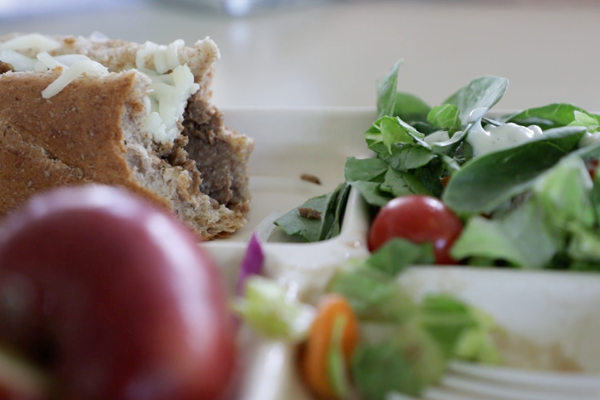Hawaii has not forgotten its local food goals
Jan 27, 2022

Since the start of the COVID-19 pandemic, Ulupono Initiative has awarded funding totaling more than $2 million to community organizations on the frontlines of strengthening Hawaii’s food security and local production.
Through this strategic support, we have been able to encourage other philanthropic organizations and government agencies to assist in providing critical support to local agriculture.
A good example is The Food Basket, which administers the “DA BUX” Double Up Food Bucks program statewide. Empowered by strong local support from government and private donors in 2020, The Food Basket demonstrated that it could expand quickly to meet current need. It was therefore well positioned to receive expanded federal aid in 2021, an additional $5 million in 2022 through the U.S. Department of Agriculture’s Nutrition Assistance Program, and another $2.6 million through the Gus Schumacher Nutrition Incentive Program (GusNIP) grant with additional matching. This funding allowed The Food Basket to expand its grocers, farmers markets and farm stand locations throughout Hawaii Island, helping local food producers while providing much needed access to healthy, locally grown fruits and vegetables to families and individuals receiving Supplemental Nutritional Assistance Program (SNAP) benefits.
Additionally, the Ulupono team applauds state legislators’ passage of bills in 2021 leveraging existing state institution food purchases and programs strengthening the local food-production market and its resilience. Bills HB 767 and HB 817, signed into law last year as Acts 175 and 176, respectively, set a requirement that state agencies — including the Hawaii State Department of Education (HDOE), which is essentially the equivalent of Hawaii’s largest restaurant — increase local sourcing in its food purchases.
Looking ahead, Ulupono Initiative will strive to keep the state accountable to these institutional food purchasing goals. In accordance with the new laws mentioned above, state departments reported on their progress, which represent the first steps toward what we hope will become more robust reporting in the future and incremental percentage increases of local food in line with the state’s commitment to buy local over the next decade.
View the year-one reports to the Legislature here:
This legislative session, we will advocate for improved DOE data collection and more effective database management to help department and other leaders make informed decisions around our state’s local food purchases to benefit both students and local ag producers alike.
To provide the public more information, the Hawaii Agricultural Foundation recently dedicated an entire EAT THINK DRINK event on "School Lunch 2.0, Hawaii's Farm to School Initiative" on Jan. 13, 2022. Watch the discussion here.

